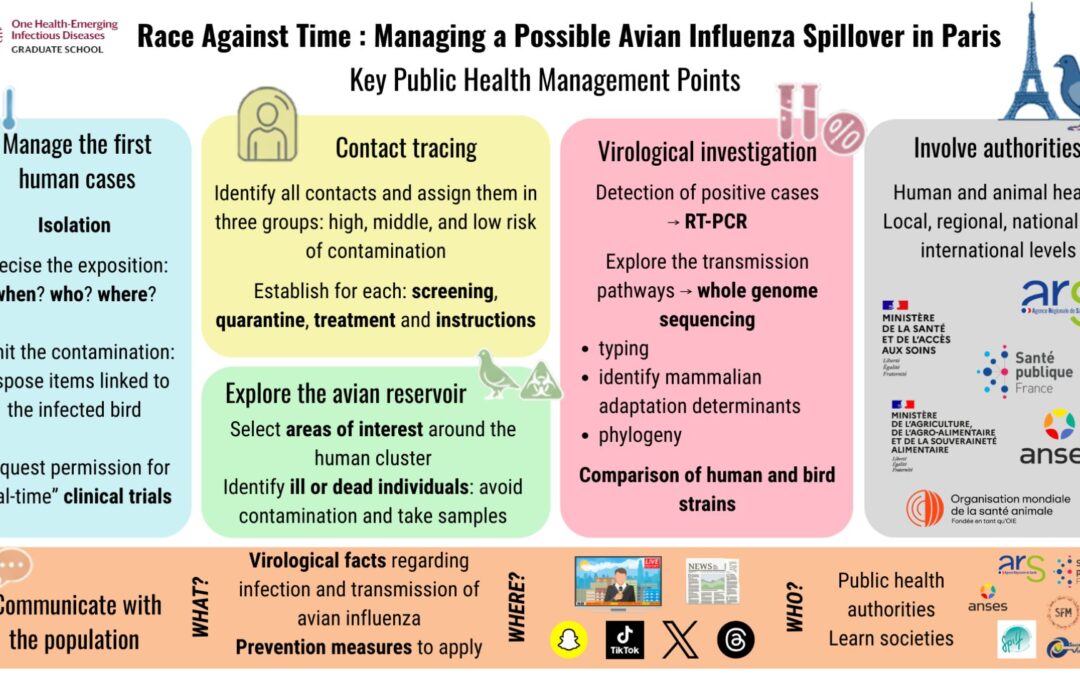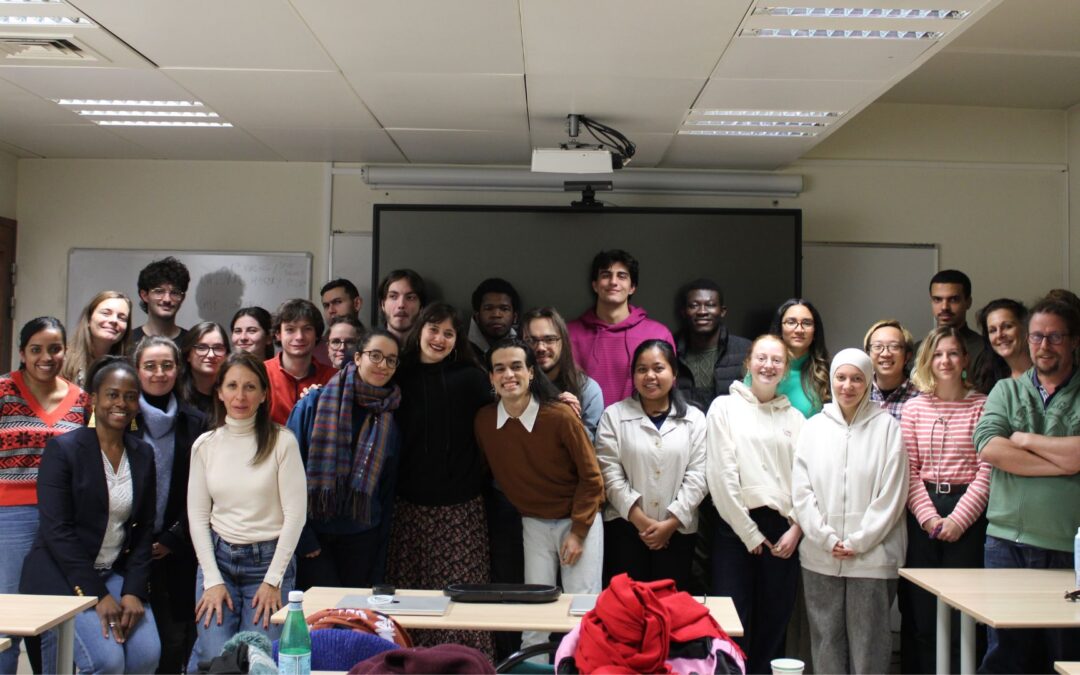The research departments within the Institut Pasteur
List
Cellular Biology and Infection
The Cellular Biology and Infection department aims to understand the functioning of the cell and its interactions in pathological contexts such as infections, neurodegenerative diseases, and cancer.
Through an integrative approach combining molecular biology, cell biology, microbiology, physics, and mathematics, the teams explore biological mechanisms at different scales, from the cell to the whole organism.
The department employs cutting-edge technologies such as in vitro models, advanced imaging techniques, and genomic and proteomic tools to conduct its research.
Structural Biology and Chemistry
The Structural Biology and Chemistry department brings together researchers, engineers, students, and postdoctoral fellows to study complex biological systems.
By employing advanced technologies such as X-ray diffraction and electron microscopy, the teams explore molecular mechanisms at various scales.
Their research covers structural biology, polysaccharide and nucleic acid chemistry, as well as molecular interactions at the cellular level. They complement their approaches with computer simulations.
Genomes and Genetics
The Genomes and Genetics department, formed in 2006, resulted from the merger of various teams from the Structure and Dynamics of Genomes department. It comprises 150 members and 19 associated teams, working on genetics of organisms ranging from bacteria to humans, including yeast.
Research focuses on evolutionary genomics, processes of recombination, replication, and repair, functional and regulatory networks, as well as host-pathogen interactions.
The department utilises experimental and computational approaches, benefiting from technological advances in sequencing and bioinformatics.
Microbiology
The Microbiology department focuses on studying bacteria as vectors of infectious diseases and as models for fundamental research. Scientists explore the molecular mechanisms that govern bacterial interaction with their environment and their ability to cause diseases.
The department houses 21 research entities, including university laboratories and collections, as well as National Reference Centers and WHO Collaborating Centers.
This work contributes to a better understanding of microorganisms and to the development of new therapies and diagnostic tools for bacterial infections.
Mycology
The Mycology department focuses on studying fungi responsible for fungal infections in humans.
Launched in 2014 to address the increasing prevalence of fungal infections worldwide, the department aims to understand the biology of fungal pathogens and develop new diagnostic and treatment strategies. Its research spans various aspects, from epidemiology to pathophysiology, including antifungal resistance and biofilm biology.
The department also hosts the National Reference Center for Invasive Mycoses and Antifungals, thereby contributing to national surveillance of fungal infections in France.
Parasites and Vector Insects
The Parasites and Vector Insects department studies parasites and insects that spread significant global health problems.
By focusing on parasites such as Plasmodium spp, Leishmania spp, and Trypanosoma spp, as well as vector insects such as Anopheles mosquitoes and tsetse flies, the department conducts research to better understand how these microorganisms interact with their hosts, how diseases are transmitted, and how treatments can become less effective.
This research helps combat malaria, leishmaniasis, and sleeping sickness, with significant implications for Africa and Asia.
Global Health
The Global Health department takes an integrated approach to address global public health challenges.
It plays a crucial role in microbiological surveillance by hosting several national reference centers and WHO collaborating centers. In the event of international epidemics, it intervenes in epidemiology and microbiology, as during the Ebola and plague crises.
The department focuses on emerging infectious diseases and antimicrobial resistance, exploring interactions between pathogens, vectors, and hosts. It collaborates with global institutions, including within the International Network of Pasteur Institutes, and contributes to public health education.
Virology
The Virology department focuses on the study of human viruses. It hosts several WHO reference and collaborating centers dedicated to viruses, working on both fundamental research and its application in public health.
Its members participate in specialized virology courses at the Institut Pasteur and collaborate closely with other departments on campus as well as with national and international institutions.
The department explores a variety of viruses, including those related to cancers, retroviruses, respiratory viruses, and arboviruses. It studies viral cycle mechanisms, pathogenesis, and transmission, while developing new strategies to combat viruses and improve diagnostics.
À lire aussi
![[Call for applications] 3-year doctoral contracts to French or international students](https://one-health-eid.u-paris.fr/wp-content/uploads/sites/26/2026/02/Appel_021-1080x675.jpg)
[Call for applications] 3-year doctoral contracts to French or international students
The 1H-EID Graduate School awards 3-year doctoral contracts to French or international students. The call will be open from March 20th, 2026 to April 17th, 2026 at 1:00 PM CET CET, for a contract commencement on September 1st, 2026. Please note that this call is...

Case study: the hidden journey of a disease outbreak
Imagine you are having lunch with family or out with friends when suddenly a news alert appears on TV or social media: new cases of influenza are spreading across your country. Have you ever wondered what happens before this information reaches you? This is the...

A Look Back at the 1H-EID Graduate School Webinar Series
The Graduate School One Health Emerging Infectious Diseases (1H-EID) has successfully launched two exciting webinar series that bring together researchers, practitioners, and students around critical health issues and pandemic preparedness. One Health Research in...

From The Field Week: A Unique Learning Experience
We're thrilled to share highlights from this year's "From the Field" teaching unit, a distinctive and dynamic component of the Graduate School One Health Emerging Infectious Diseases (1H-EID) program, expertly organized by Solen Kernéis, Loïc Epelboin, and Nathan...
